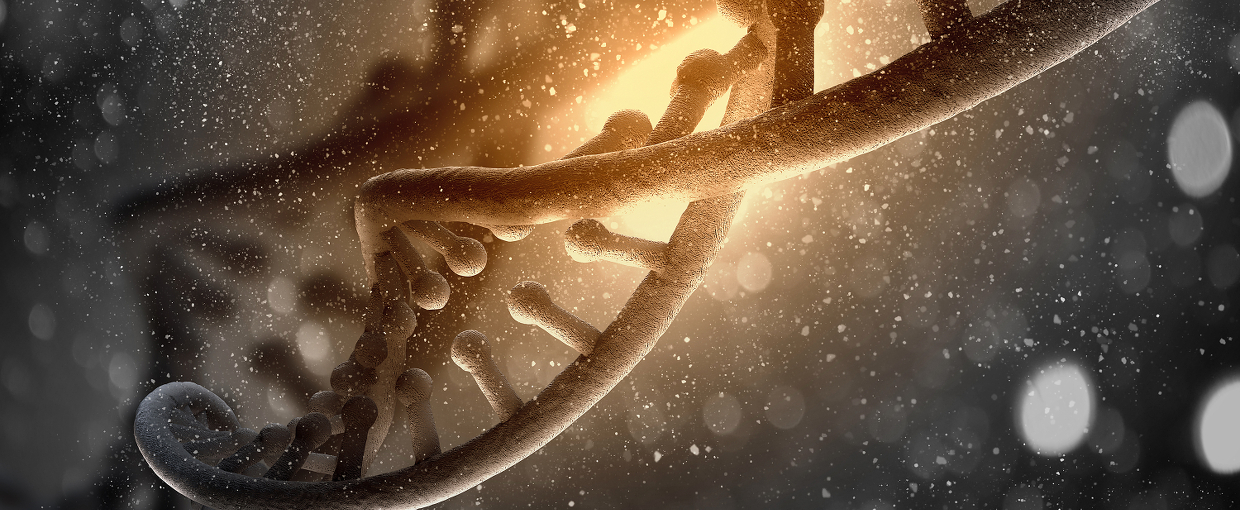-
A Corrected Genome Sequence for Bacillus pumilus strain SAFR-032
July 11, 2016 / Written by: Aaron Gronstal
Artist impression of a strand of DNA.
Authors of the PLOSOne article from left to right: Victor Stepanov (University of Houston), Madhan Tirumalai (U of H), Saied Montazari (U of H), Aleksandra Checinska (NASA JPL), Kasthuri Venkateswaran (NASA JPL), and George E Fox (U of H)Researchers have identified assembly errors in the published genome sequence of the organism Bacillus pumilus strain SAFR-032. Since 2007, the previously published sequence for this strain has been regarded as representative of the B. pumilus species. The new study provides a corrected sequence for SAFR-032 based on the new findings.
Strain SAFR-032 is a spore-forming bacterium, and is able to live in environments where other bacteria struggle. When dormant, SAFR-032 can also withstand high doses of ultraviolet radiation and hydrogen peroxide, conditions that are lethal for many other microorganisms. It’s ability to survive has made SAFR-032 has been an important model for studying spore resistance in bacteria. Studying bacterial resistance has important implications for planetary protection and can advance our understanding of habitability in extreme environments, both on Earth and beyond.
The study, “Bacillus pumilus SAFR-032 Genome Revisited: Sequence Update and Re-Annotation,” was published in the journal PLOS One.
Source: [PLOS One]
- The NASA Astrobiology Institute Concludes Its 20-year Tenure
- Global Geomorphologic Map of Titan
- Molecular Cousins Discovered on Titan
- Interdisciplinary Consortia for Astrobiology Research (ICAR)
- The NASA Astrobiology Science Forum Talks Now on YouTube
- The NASA Astrobiology Science Forum: The Origin, Evolution, Distribution and Future of Astrobiology
- Alternative Earths
- Drilling for Rock-Powered Life
- Imagining a Living Universe
- Workshops Without Walls: Astrovirology